Current projects:
CORBEL
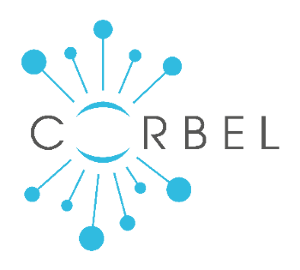
The social and economic challenges of ageing populations and chronic disease can only be met by translation of biomedical discoveries to new, innovative and cost effective treatments. The ESFRI Life Science Research Infrastructures (LS RI - formerly called "Biomedical Science RIs or BMS RIs) underpin every step in this process; effectively joining scientific capabilities and shared services will transform the understanding of biological mechanisms and accelerate its translation into medical care.
Biological and medical research that addresses the grand challenges of health and ageing span a broad range of scientific disciplines and user communities. The BMS RIs play a central, facilitating role in this ground-breaking research: inter-disciplinary biomedical and translational research requires resources from multiple research infrastructures such as biobank samples, imaging facilities, molecular screening centres or animal models. Through a user-led approach CORBEL will develop the tools, services and data management required by cutting-edge European research projects: collectively the BMS RIs will establish a sustained foundation of collaborative scientific services for biomedical research in Europe and embed the combined infrastructure capabilities into the scientific workflow of advanced users.
EOSC-Life
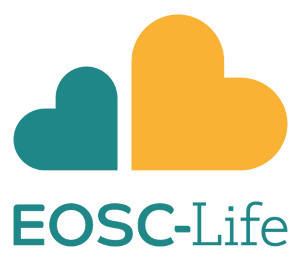
EOSC-Life brings together the 13 Biological and Medical ‘ESFRI’ research infrastructures (BMS RIs) to create an open, digital and collaborative space for biological and medical research. The project will publish ‘FAIR’ data and a catalogue of services provided by participating RIs for the management, storage and reuse of data in the European Open Science Cloud (EOSC). This space will be accessible to European research communities.
EOSC-Life will make data resources from BMS RIs ‘FAIR’ and publish them in the EOSC following guidelines and standards. Overall, this will drive the evolution of the RI repository infrastructure for EOSC and integration of the BMS RI repositories.
EOSC-Life will implement workflows that cross disciplines and address the needs of interdisciplinary science. Through open hackathons and bring-your-own-data events we will co-create EOSC-Life with our user communities, providing a blueprint for how the EOSC supports wide-spread and excellent data-driven life science research.
EOSC-Life will address the data policies needed for human research data under GDPR. Interoperable provenance information will describe the history of the sample and data to ensure reproducibility and adherence to regulatory requirements.
ERIC Forum
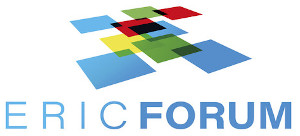
The community legal framework for a European Research Infrastructure Consortium (ERIC) is a specific legal form to facilitate the establishment and operation of research infrastructures with European interest. Among others, it provides a legal capacity recognised in all EU Member States, a faster process than creating an international organisation, and exemptions from VAT and excise duty.
During the past years, the European Commission (EC) and the ERICs met twice a year to address and discuss issues in the implementation of the ERIC regulation. ERICs exchanged during these meetings commonly shared challenges in fields ranging from human resources management, procurement, VAT and excises exemption implementation, in-kind contributions, as well as the socio-economic impact of ERICs, performance monitoring and more.
Aware of the constant enlargement of the community, the existing ERICs formed in 2017 the ERIC Forum in order to further strengthen the coordination among ERICs and interact effectively with the EC to achieve the full implementation of the ERIC regulation.
The ERIC Forum’s aim is to advance operations of ERICs and to strategically contribute to the development of ERIC related policies.
RItrain
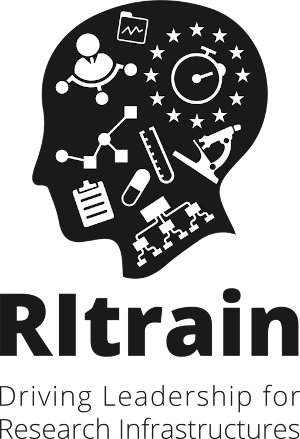
RItrain, the Research Infrastructure Training Programme, is an EU-funded Horizon 2020 project aimed at improving and professionalizing the training of managerial and leadership staff in research infrastructures (RIs). This is vital for the future success of Europe because access to excellent RIs underpins today’s research and innovation. The tailored training comprises:
- Executive Masters in Management of Research Infrastructures
- A series of webinars with experienced leaders in research infrastructures
- Staff Exchanges to access managerial and leadership expertise directly from leading research infrastructures
RI-VIS
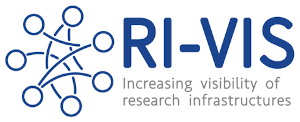
RI-VIS is a Horizon 2020 funded project to increase the visibility of European research infrastructures (RIs) to new communities in Europe and beyond. We have a consortium of 13 partners from 12 RIs working in the fields of biomedical sciences, social sciences and environmental sciences. We also have expert advisors from the Physics sector, and from e-infrastructure. The objectives of RI-VIS are to:
- Map RI services to new target communities and identify routes to maximize exchange of information and bases for new partnerships
- Create an outreach programme to provide information, bring research infrastructures together with new target communities and facilitate collaborative engagement
- Create a collection of tools that are freely available to all research infrastructures that have demonstrated efficacy and impact in facilitating new cooperative relationships
Past projects:
BioMedBridges

BioMedBridges is a joint effort of twelve biomedical sciences research infrastructures on the ESFRI roadmap. Together, the project partners develop the shared e-infrastructure - the technical bridges - to allow data integration in the biological, medical, translational and clinical domains and thus strengthen biomedical resources in Europe. The project succesfully concluded in December 2015, delivering the basis and impetus for its follow-on sister project CORBEL.
EMBRIC
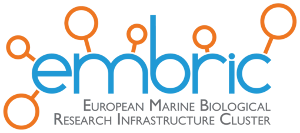
The European Marine Biological Research Infrastructure Cluster (EMBRIC) is designed to accelerate the pace of scientific discovery and innovation from marine Bio-Resources. EMBRIC aims to promote new applications derived from marine organisms in fields such as drug discovery, novel foods and food ingredients, aquaculture selective breeding, bioremediation, cosmetics and bioenergy.
- By conducting a comprehensive survey of available resources and techniques, EMBRIC will develop new pipelines and new industry standards.
- By interconnecting science, industry and policy, EMBRIC will defragment regional research, development and innovation policies.
- By implementing joint academia-industry development activities, EMBRIC will allow industry to directly integrate results and protocols in commercial processes.
- By developing best practices and integrated training programs, EMBRIC will accelerate the pace of scientific discovery and innovation.
- By connecting 6 existing European Research Infrastructures and 29 partners from Academia, Research institutes, non-for-profit organizations and industry, EMBRIC will facilitate technology transfer, knowledge transfer and transnational access.
In general, EMBRIC will provide a long-term integrated cluster approach to promote the Blue Bio-Economy.
 European Life Science Research Infrastructures
European Life Science Research Infrastructures